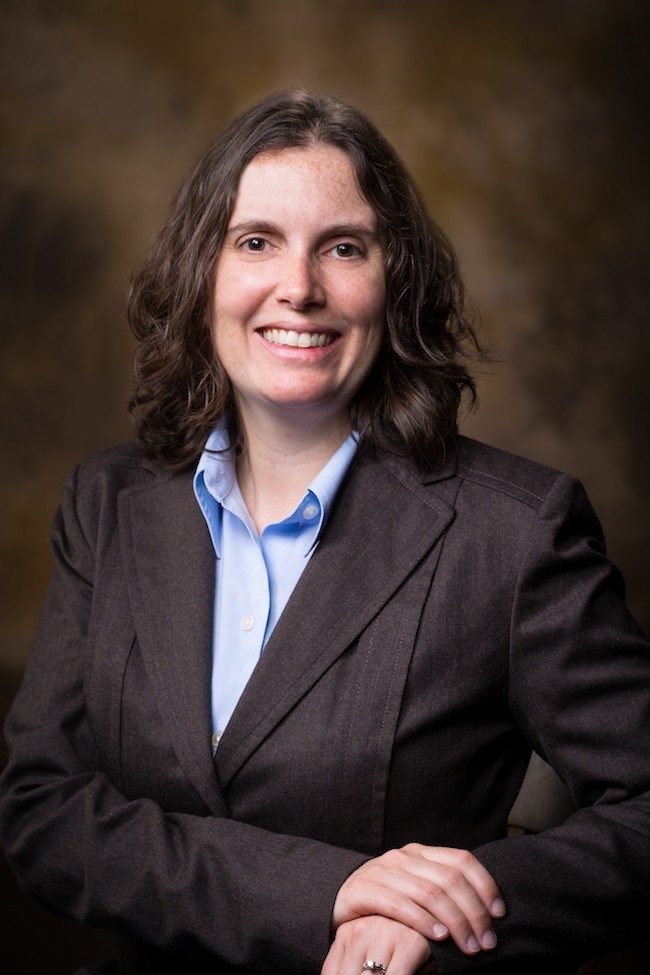The UA Integrative Systems Neuroscience Seminar Series presents associate professor Shannon Servoss from the Department of Chemical Engineering. Servoss' talk entitled "Peptoids for treatment of neurological disease" will be given virtually at noon Thursday, Sept. 10.
Servoss received her bachelor's degree in chemical engineering from the University of Michigan, where she worked in the laboratory of Mark Burns. Her graduate work was completed at Northwestern University under the advisement of Annelise Barron and Mark Johnson. The focus of her thesis was peptoid-based mimics of lung surfactant protein B. After receiving her Ph.D., Servoss completed a postdoctoral position at Pacific Northwest National Laboratory working with Richard Zangar and Cheryl Baird. Here she worked on utilizing single-chain antibody fragments for ELISA microarray. Servoss joined the faculty at University of Arkansas in 2007, where she is an associate professor of chemical engineering. Her research group focuses on the design and characterization of peptoids for biomedical applications.
Abstract: Peptoids are protease-resistant oligomers that harness similarities to peptides for biomimetic functionality. They have potential for use in biomedical applications, including disease detection and biosensors, due to their high bioavailability and low immunogenicity. The Servoss lab has focused on the use of peptoids for treatment of neurological disease. As a potential treatment for Alzheimer's disease, we have designed a peptoid that modulates aggregation of amyloid beta. Our studies show that the peptoid greatly reduces aggregation, and also decreases inflammation due to exposure to amyloid beta. Another focus has been development of artificial extracellular matrix for growth and differentiation of neural stem cells. The peptoid-based surfaces that we have created are non-toxic and promote the growth and differentiation of neural stem cells to neurons. Our work has shown that peptoids have great promise in the treatment of neurological disease.
The event is free and open to the public. Faculty, postdocs, grad students and undergrads are welcome! To join, go to meet.jit.si/uarkneuro.
Topics
Contacts
Darya Zabelina, assistant professor
Department of Psychological Science
479-575-5813,
